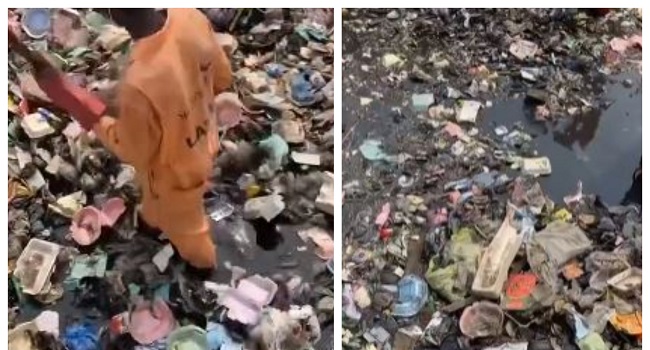Lagos Bans Styrofoam, Single-Use Plastic

The Lagos State Government has banned the use and distribution of single-use plastics, such as Styrofoam, in the state.
The Commissioner for the Environment and Water Resources, Tokunbo Wahab, made the declaration in a statement issued on Sunday by the ministry’s Director of Public Affairs, Kunle Adeshina.
Adeshina quoted Wahab as saying that the decision was made in response to the environmental threat posed by single-use plastics, particularly non-biodegradable styrofoam, adding that the state’s drainage channels were constantly clogged by the material as a result of its careless distribution and consumption.
He reinstated that styrofoams accounted for a greater portion of the litter that the Lagos State Waste Management Authority (LAWMA) deals with regularly on major roadways and in marketplaces.
Adeshina noted that the Kick Against Indiscipline and the state waste management Authority should clamp down on all styrofoam manufacturing companies and distribution companies in the state to avoid further distribution.
He said, “The state took the present action, relying on several enabling laws and regulations such as the National Environmental (Sanitation and Waste Control) Regulation 2009 which was established under NESREA Act that prohibited and specifically banned single-use plastic in the country but has not been enforced.
“The 2017 State Environmental Management and Protection Law which states under section 56(I) (y) prevent, stop or discontinue any activity or omission, which is likely to cause harm or has caused harm to human health or the environment.”
He urged residents and consumers to adopt the habit of utilising reusable water bottles and food containers for their food and beverages and to shun single-use plastics and styrofoam packaging.
“Our state cannot be held hostage to the economic interests of a few wealthy business owners compared to the millions of Lagosians suffering the consequences of indiscriminate dumping of single-use plastics and other types of waste. The well-known consequences include climate change, flooding, and diseases like cholera.
“The convenience of single-use plastic comes at a huge cost to society. We must all make small sacrifices for our collective well-being.”



